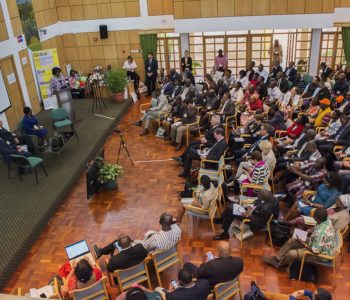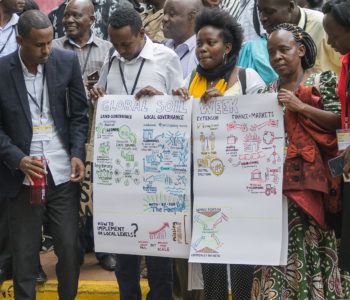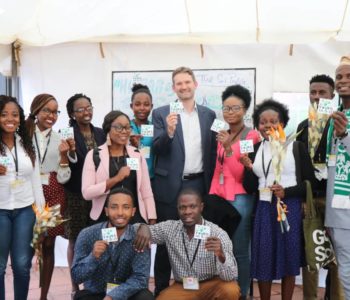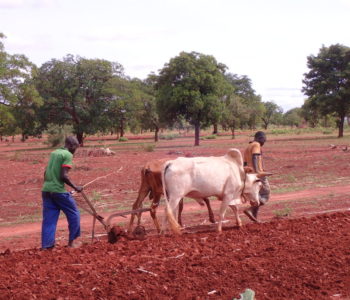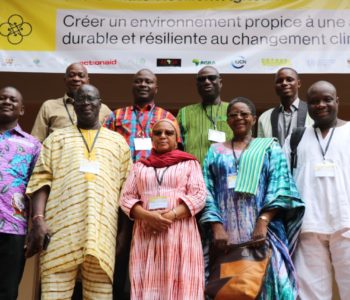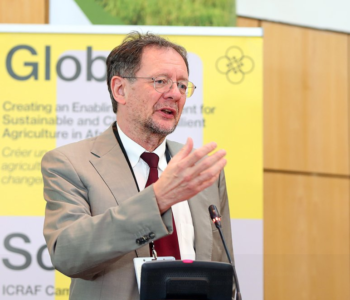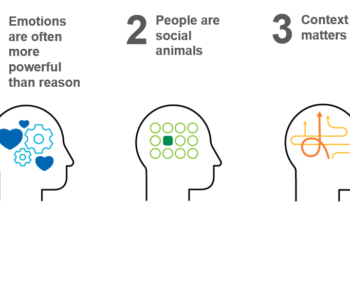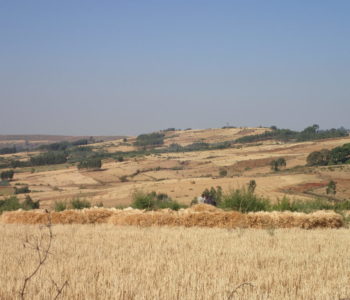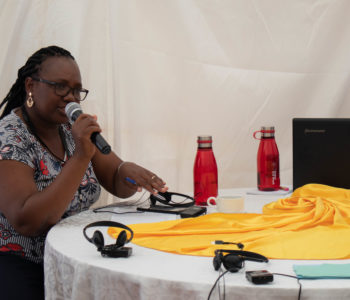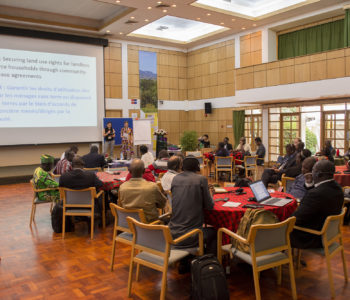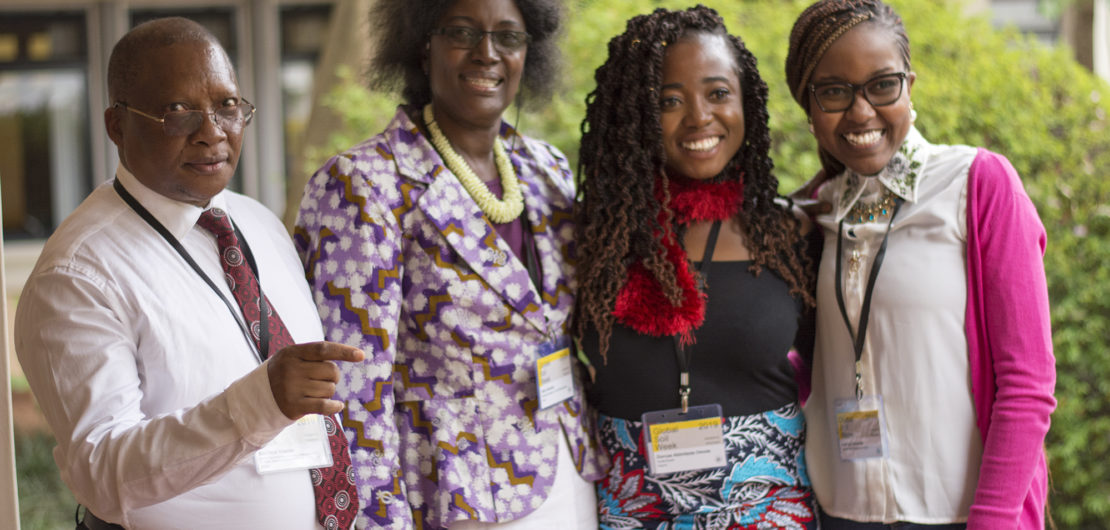
Enabling environment for sustainable land use and management
Enabling environment for sustainable land use and management
By Nellie Kanyemba Kapatuka
For a long time, African countries have been heavily affected by effects of climate change ranging from soil erosion, degradation and drought among many others. Implementation of deliberate measures set aside by government and developmental partners still seem not to fully address such issues causing fear and anxiety among people especially the most rural communities in Africa.The workshop on land management at the Global Soil Week 2019 which brought over 200 participants across the globe, revealed existing gaps in the current initiatives to conserve and protect land to create an enabling environments for sustainable climate resilient agriculture on African continent.
In one of the dimension workshop on local governance, successful cases were analyzed and reviewed. In Malawi, Chia lagoon which lies on Lake Malawi was on the verge of destruction as it was heavily silted due to water run-off. Sharing the story, Total Land Care Malawi Managing Director Zwide Jere explained how challenging it was to change the mindset of communities around the lagoon into realizing their roles in redeeming it. “Farming activities happening upstream had deadly impacts on the downstream communities who heavily relies on fishing for livelihood”, said Zuze, one of the expert from the workshop. It was discussed that involvement of both up and down stream water users almost yielded nothing as they both did not realize how beneficial the water body is to them both until the process restructured to involve key local structures in the implementation process.
In Kenya, a case study was cited that 80% of women are engaged in farming activities, leading to implementing projects that aimed at enhancing food security and market access for land constrained women farmers. This implementation of this project has successfully empowered women to have access to their own farmland. In a quest to create an enabling environment for sustainable agricultural production and climate resilient agriculture, the project which 850 women farmers, who were empowered to steer all the agricultural processes in their communities.
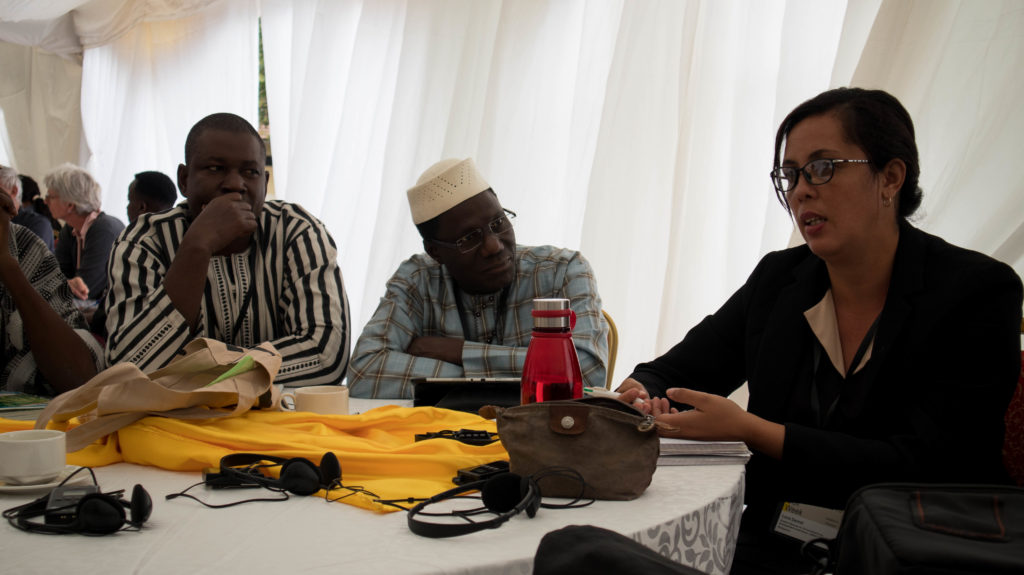
One Acre Fund on the other hand, working in countries like Kenya, Malawi, Ethiopia and Zambia among others, is bailing out farmers by providing financial assistance in form of loans for farmers to easily access farming inputs. This project however stirred some debate among the workshop participants as to whether farmers in Africa really need money or capacity building for them to have en enabling environment for their agricultural production. However, Daniel Omondi from the One Acre Fund said all they want is to improve accessibility and applicability of rural extension services for small holder farmers. He added that with time, they expect the farmers to develop resistance and become financially independent.
“We set a fixed time frame where a farmer can be a beneficiary of these loans to make sure that we enhance the spirit of self-reliance so they can be financially independence”, said Omondi.
The workshop draws conclusion with valuable lessons such as good working collaboration between government and non-governmental organizations, women involvement in matters that affect them by overcoming gender stereotypes and changing people’s mindset towards non-conventional agricultural practices. The discussions from the different dimensions from the Global Soil Week 2019 including land governance, local governance, extension services and finance and market leaves no doubt that delegates will go back with refreshed minds and a clear vision on how to help farmers in Africa have an enabling environment for sustainable climate resilient agriculture.
